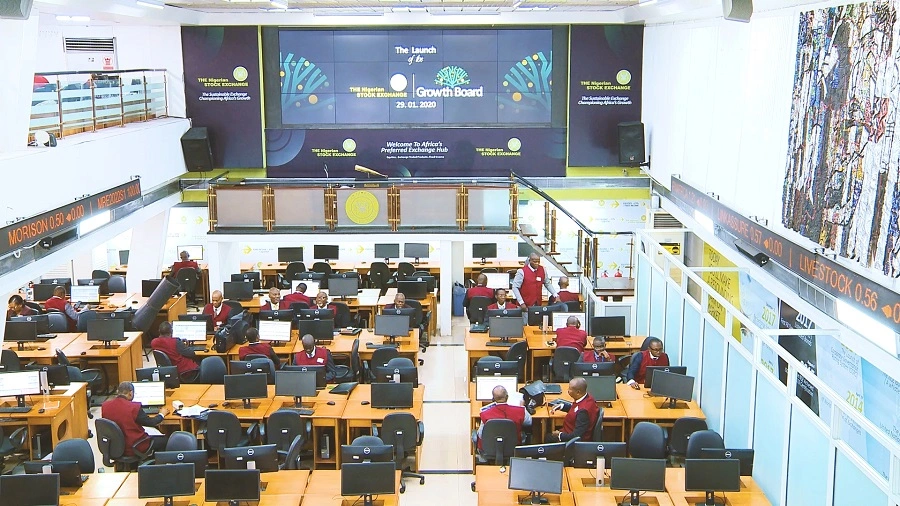BY IFEYINWA UWEFOH
In considering this topic, what immediately caught my attention was: What defines a volatile market?
Imagine trading in stocks while experiencing steady daily movements, and then suddenly the stocks start moving in variable daily proportions. This example sheds some light on what volatility in the market looks like.
A volatile market refers to a financial market where frequent and significant price fluctuations occur over a short period of time, and this tells a story of uncertainty in the market, changing investor sentiments or high trading activity. These scenarios may be caused by mere speculations, natural disasters, pandemics, economic indicators, or political events.
Advertisement
In any volatile market, one can expect to take advantage of possible opportunities, but there are also risks of losses. On another hand, one can expect to see large price swings and high trading volumes or even experience uncertainties, driven by economic data, geopolitical events, unexpected news, or earnings reports.
Which regions can be classified as having volatile markets? Is Nigeria a volatile market?
The recent Israel–Iran conflict has had a noticeable impact on global stock market volatility, especially through the energy sector, with a ripple effect across other sectors. We have experienced oil price volatility, while on the flip side, safe havens like gold have edged up. US dollars strengthened while cryptocurrencies and risk-sensitive currencies have experienced heightened volatility. Similarly, we have seen sector divergences, for instance, while energy stocks got a boost, the airlines and travel-related equities underperformed.
Advertisement
The US tariffs created a sudden shock in the market, sending equities into a rout, dramatically spiking volatility and triggering a global asset rotation into safer instruments. Market calm followed only after policy reversals.
Coming home to Nigeria, the naira has seen sharp devaluation and multiple exchange rates, high inflation, and dollar scarcity contribute to forex volatility. The Nigerian Stock Exchange (NGX) has limited depth and low daily turnover compared to developed markets. Foreign investors often face delays or restrictions in repatriating capital.
Also, changes in government policies, e.g., fuel subsidy removal and FX management, can cause market shocks. There is also the issue of security challenges, which affect investor confidence and economic stability. Nigeria’s economy and government revenue are highly dependent on crude oil exports. Frequent oil swings experienced globally have a huge impact on Nigeria’s markets and currency.
For Nigeria, inflation has remained in the double digits for years, forcing the Central Bank to raise interest rates. These monetary shifts make bond and equity pricing more unstable.
Advertisement
Takeaways for investors:
- Expect volatility around policy shifts
- Hedge equity risks
- Monitor sector exposures
- Global diversification matters
- Local knowledge is essential
Common strategies for navigating volatile markets. Any peculiarities for Nigeria?
Interestingly, volatile markets present great opportunities for making huge investment profits, but they can also be very challenging. Outlined below are some useful tips on how to navigate market volatility:
DIVERSITY
Advertisement
Diversification reduces risk, and this is certainly a time to spread your investments across various sectors, asset classes (stocks, real estate, fixed income) and even across geographical jurisdictions.
HAVE A LONG-TERM FOCUS
Advertisement
A long-term mindset will assist in riding out the storm, especially as volatility is not unusual. In the long run, markets have been seen to recover and grow.
REBALANCE YOUR PORTFOLIO
Advertisement
Asset types respond differently in volatile markets. Stocks may swing up or down depending on how the factors coming into play affect different industries. Commodity prices, too, can swing, just as other asset classes will also be affected. This makes it necessary to consider a shift in asset allocation. A periodic rebalancing will help keep your risks and investment goals aligned.
PRIORITISE QUALITY INVESTMENTS
Advertisement
Companies with good management and financial track records should be top picks. However, bear in mind that sectors like consumer staples, healthcare and utilities typically remain stable even in volatile conditions.
DOWNPLAY SPECULATION AND HIGH-RISK TRADES
Don’t try to chase trends or time the market except if you’re an experienced trader. Also, avoid ‘hot’ stocks or crypto spikes to avoid losing money.
UTILISE DEFENSIVE INVESTMENT OPTIONS
Considering investment options that provide considerable stability, such as bonds, dividend-paying stocks, or gold, is certainly a winning strategy. Some investors also use hedging techniques; however, note that they require more knowledge and care.
CASH IS KING
You want to be prepared to take advantage of sharp price drops when they arise, so always ensure to keep some cash. Don’t be fully invested if you’re uncomfortable with high risk.
USE DOLLAR – COST AVERAGING (DCA)
Invest a fixed amount regularly, regardless of market conditions. This strategy helps smooth out purchase prices over time and reduces the risk of investing a lump sum at the wrong moment.
AVOID PANIC AND EMOTIONAL DECISIONS
Emotional reactions often lead to poor timing, such as buying high and selling low, so don’t panic sell. Focus on your long-term plans except where there is a compelling reason to do otherwise
SEEK FINANCIAL ADVICE
Speak to the experts if unsure about anything. They can guide you through volatile times.
Dynamics of Nigerian wealth: Less than 1% of Nigerians are estimated to be high/ultra-high net worth individuals. Global standards generally define high/ultra-high net worth individuals as those with a million dollars and above. Despite less than 1% of its population falling into this market segment, Nigeria is ranked as the third largest country in Africa with the most high/ultra-high net worth individuals. The African market is estimated to have high/ultra-high net worth of $150Bn as of 2024, and the market is on a growth trajectory, driven by economic developments & technology. However, peculiar challenges for Nigeria include economic volatility, regulatory compliance, and technology demands.
Tailored investment strategies for Nigeria’s wealthiest families
This will be considered under low-risk to high-risk options.
LOW RISK
These are generally safer investments
Nigerian Treasury Bills: The treasury bills are ideal for short-term, low-risk returns with interest rates ranging from circa 19% to 20%
Government Bonds: This ranges from the federal government savings bond to euro-bonds and dollar-denominated bonds. The FX bonds offer diversification with yields at circa 9 – 10% and are less exposed to naira volatility.
MID RISK
These would include plain vanilla fixed deposits, which offer predictable inflation-hedged returns for risk-averse investors.
For equities, Nigerian NGX dividend-paying stocks yield circa 3-10% and provide income plus upside.
For professionally managed diversification, Mutual Funds and Savings Plans are good options. They include ESG, non-interest funds and sukuk-based investments.
MODERATE TO HIGH RISK
They are growth-oriented investments and may focus on sectors like fintech and SMEs, real estate, renewable energy (solar) and agriculture and agri-tech, all yielding returns ranging from 8% to as high as 40%
The Nigerian pension regulator, PENCOM, has a focus on infrastructure investments beyond government debt, targeting higher, stable returns in roads, utilities, and private equity opportunities.
CONCLUSION
For Nigeria’s wealthiest families, tailored investment strategies that can be employed include:
Conservative options: investments in treasury bills, fixed deposits, and government bonds. These will give high-yield, low volatility returns.
Balanced options: add dividend-paying stocks or mutual funds for income and growth.
Growth–focused: consider agro-tech, real estate, solar ventures, or fintech. Such investments should preferably be done via trusted platforms or cooperatives.
Institutional: for investors with scale, track PenCom’s infrastructure initiatives.
Ifeyinwa Uwefoh is the group head, private banking, Coronation Merchant Bank
Views expressed by contributors are strictly personal and not of TheCable.









